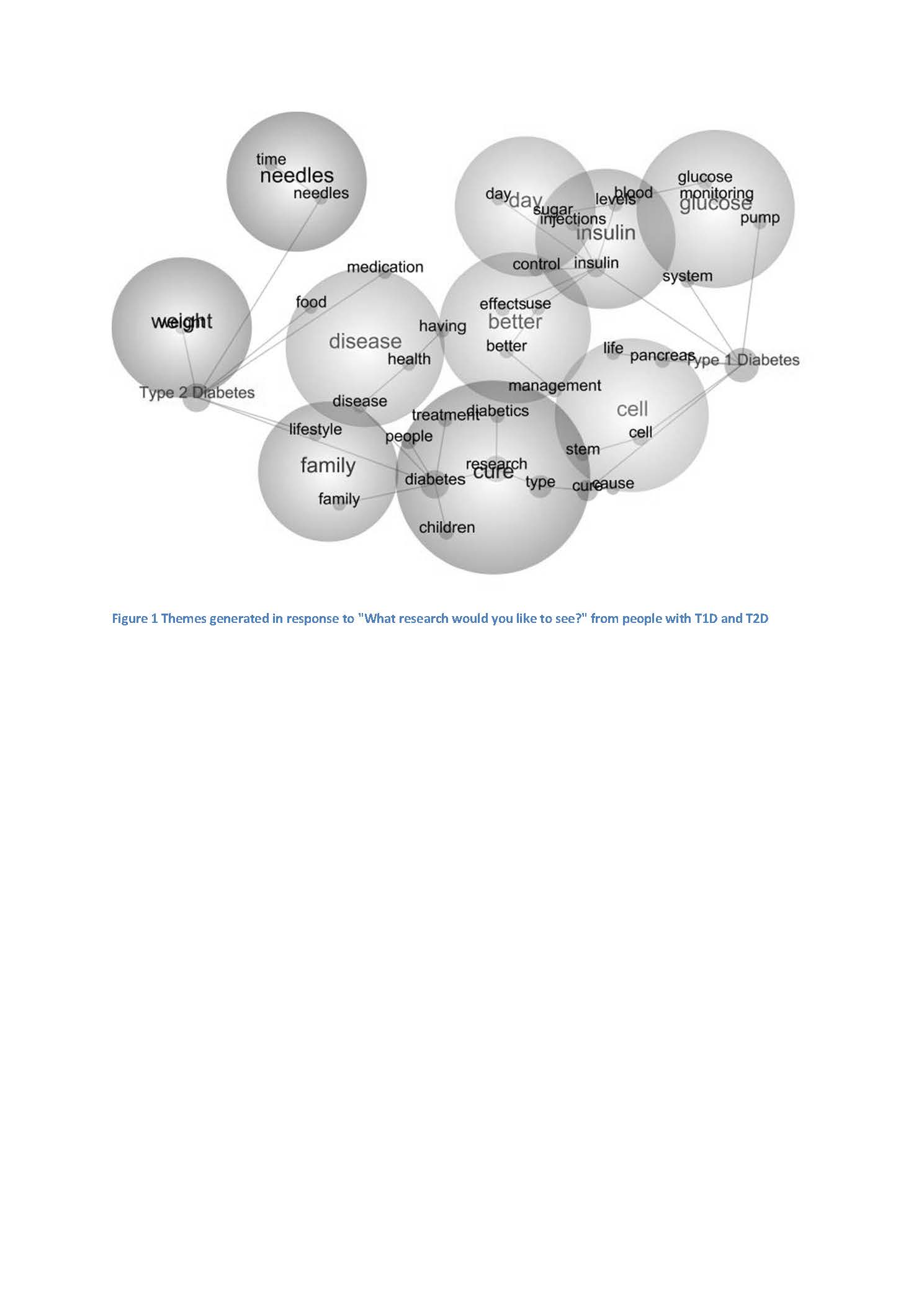Poster Presentation Australian Diabetes Society and the Australian Diabetes Educators Association Annual Scientific Meeting 2014
What research do adults with diabetes want? Analysis of 1211 qualitative responses to Diabetes MILES - Australia (#388)
Background: Research is vital for improving the lives of people with diabetes. Engaging this target group in decision-making can enhance research relevance, quality and appropriateness. We aimed to investigate the research priorities of adults with type 1 diabetes (T1D) and type 2 diabetes (T2D) using qualitative data from the Diabetes MILES-Australia study.
Methods: 3,338 eligible adults responded to the Diabetes MILES-Australia survey, which included an open-ended question “what research would you like to see?”.Responses were categorised by participants’ type of diabetes. Analysis was conducted using Leximancer, which uses word association to elicit relationships between content frequency, themes and words, and creates a graphic to demonstrate these relationships, using large circles to represent themes, with smaller words being concepts contributing to the content of themes.
Results: 1,211 (36%) participants (T1D: n=608; T2D: n=603) responded to the open-ended question. The central area of the map (see Figure) illustrates shared themes across the two groups: Cure, Better, Disease, Family, and Cell. These themes included calls for research to increase the quality of prevention and management strategies, scientific advances in diabetes treatments and support for families. Themes closer to the diabetes type labels on either side of the map indicate greater relevance to T1D or T2D respectively. Adults with T1D requested research focused on themes of Cell (islet/stem), Insulin, Day and Glucose (monitoring/devices). Adults with T2D requested research related to Weight, Needles, Disease and Families; in general, these themes were related to symptom management and requests to better understand biological interactions, such as diet and diabetes.
Conclusions: Discovering a cure was of great importance regardless of type of diabetes, though many other themes emerged of similar magnitude, relating to better management, and better support for people with diabetes and their families. These findings suggest future research addresses the needs specific to T1D and T2D separately.
